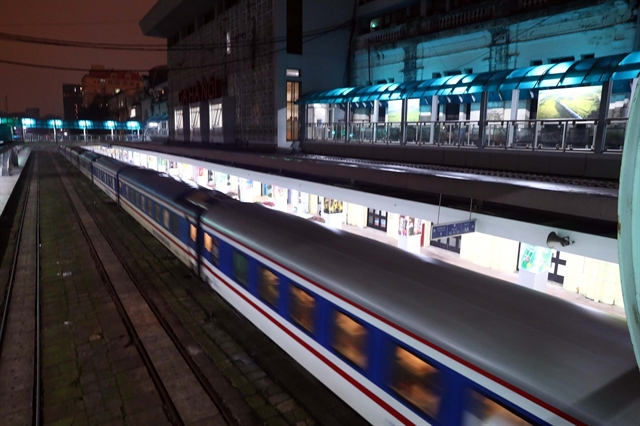 Politics & Law
Politics & Law


|
| North–South train departing from Hà Nội Station. VNA/VNS Photo |
HÀ NỘI – The National Assembly (NA) held group discussions on Monday afternoon to scrutinise the draft revised Railway Law, part of its ongoing 9th session.
Minister of Construction Trần Hồng Minh stated that while the 2017 Railway Law has yielded positive results, it has also revealed a number of institutional and regulatory bottlenecks that have hindered the efficiency and effectiveness of railway infrastructure development. As Việt Nam prepares to implement major rail projects in the coming period, a series of specific mechanisms and policies will be necessary.
To that end, the ministry has proposed amending the law to incorporate these mechanisms, aiming to build a consistent legal framework, Minh said. The draft has already received feedback from the Government and the Politburo and is currently being refined following a review by the NA’s competent agencies.
According to the minister, the revised law introduces new provisions on capital mobilisation and the promotion of the private economic sector’s investment. Five private investors have already registered to participate in upcoming railway projects.
One of the notable additions to the draft law is the integration of railway development with urban planning models. Instead of relying solely on ticket revenues, investors may be granted rights to exploit land around railway stations and urban areas, thereby generating resources for reinvestment.
The draft law also proposes streamlined investment procedures to reduce project preparation time and lower costs for the State, Minh noted.
Lawmakers broadly supported the proposed amendments which they said will not only help modernise the railway system but also provide a favourable legal corridor for developing the railway industry and attracting investment from various economic sectors.
The revisions' focus on sci-tech application, international cooperation, and the improvement of human resources quality will contribute to a sustainable and globally integrated railway sector, they opined.
Regarding railway infrastructure requirements stipulated in Article 10 of the draft, deputies proposed clearer stipulations tailored to each category of railway within the national system. They also called for the inclusion of partnership mechanisms, tendering procedures, investor rights, and the use of digital technologies and artificial intelligence in railway management and operations. VNS




